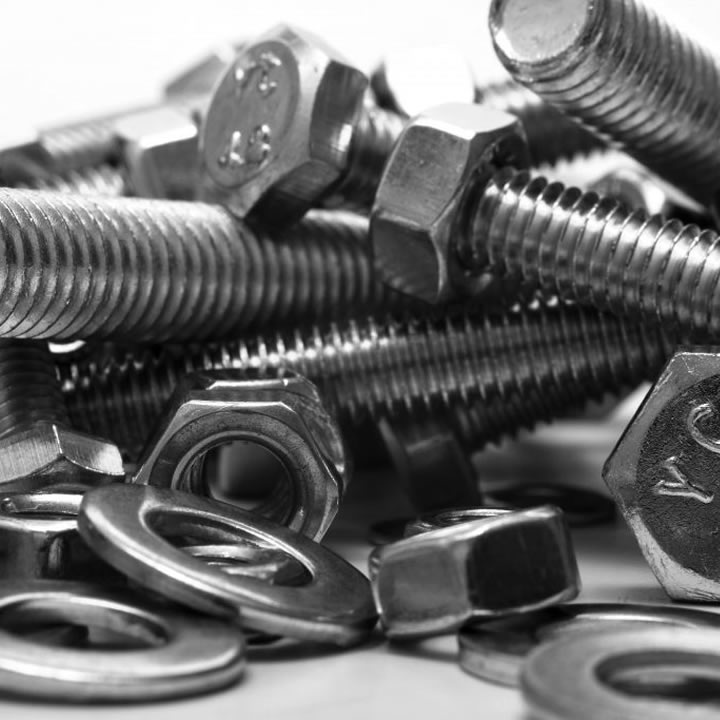Imperial bolts are a vital component in construction and manufacturing, playing a crucial role in holding things together securely. These bolts, often called imperial or standard bolts, come in various shapes and sizes, serving different purposes across industries.
What Are Imperial Bolts?
Imperial bolts belong to a standard system of measurement primarily used in the United States and some other countries. They are threaded fasteners made of metal, featuring a head at one end and a threaded shaft at the other.
The threading on the shaft allows them to be screwed into nuts or tapped holes to hold materials together.
Types of Imperial Bolts
These bolts come in different types, each designed for specific applications:
- Hex Bolts: These have a hexagonal head, usually requiring a wrench or socket to tighten or loosen them.
- Carriage Bolts: Identified by their smooth, round head and square section beneath it, these bolts are commonly used in wood-to-wood connections.
- Machine Bolts: Similar to hex bolts but with finer threading, often used in machinery and equipment.
- Stove Bolts: These have a flat or round head and are typically used in sheet metal applications.
- Eye Bolts: Featuring a looped head, these bolts are used to secure cables or wires.
Sizing and Measurements
Imperial bolts are sized based on their diameter, length, and thread pitch. The diameter is measured across the shank of the bolt, while the length is the distance from the head to the end of the shaft. Thread pitch refers to the distance between threads on the bolt’s shaft.
Uses and Applications
Imperial bolts find their place in numerous industries:
- Construction: Used in building structures, bridges, and roads.
- Automotive: Integral in vehicle assembly and repairs.
- Manufacturing: Essential for assembling machinery and equipment.
- Household: Found in furniture, appliances, and DIY projects.
- Aerospace: Used in constructing aircraft and spacecraft.
Choosing the Right Imperial Bolt
Selecting the appropriate bolt depends on the specific application requirements. Factors to consider include load-bearing capacity, material strength, corrosion resistance, and environmental conditions.
- Material: Bolts are available in various materials like stainless steel, carbon steel, and brass, each offering different properties.
- Strength: Bolts are graded based on their strength; higher grades indicate stronger bolts capable of withstanding heavier loads.
- Coatings: Some bolts come with coatings like zinc or galvanization to prevent rust and corrosion, crucial for outdoor or harsh environment use.
Maintenance and Care
Proper care ensures the longevity and effectiveness of imperial bolts:
- Regular Inspections: Check bolts for signs of wear, corrosion, or damage.
- Lubrication: Apply lubricants to reduce friction during tightening and prevent seizing.
- Replacement: Replace worn or damaged bolts promptly to maintain structural integrity.
Specialized Imperial Bolts
Beyond the standard types, certain bolts serve specialized functions:
- Anchor Bolts: Embedded in concrete to secure structures and machinery.
- Toggle Bolts: Ideal for hanging heavy objects on walls where studs aren’t available.
- U-Bolts: Shaped like the letter U, used for piping, conduit, and securing round objects.
Installation Tips
Proper installation is crucial for bolt efficiency:
- Torque: Use a torque wrench to tighten bolts to the manufacturer’s specifications, preventing under or over-tightening.
- Alignment: Ensure proper alignment between the bolt and the nut or threaded hole for a secure fit.
- Washers: Use washers under the bolt head or nut to distribute pressure and prevent damage to the material being bolted.
Safety Considerations
Safety should always be a priority when working with bolts:
- Personal Protective Equipment: Wear gloves and eye protection to prevent injuries from sharp edges or debris.
- Proper Handling: Lift and carry bolts safely, considering their weight and size to avoid accidents.
Environmental Impact
Consider the environmental impact when selecting bolts:
- Recyclability: Some materials, like stainless steel, are highly recyclable, reducing environmental impact.
- Corrosion Resistance: Choosing corrosion-resistant bolts can extend their lifespan, reducing the frequency of replacements and waste generation.
Conclusion
Imperial bolts are the unsung heroes holding together the world around us.
Understanding their types, sizes, and applications can empower individuals and industries to choose the right bolts for their specific needs, ensuring safety, reliability, and durability in various constructions and creations.

